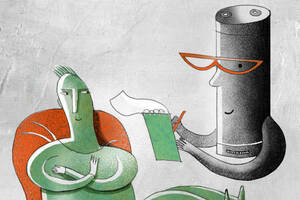You’re ordering dessert and know exactly what you want: the lavender crème brûlée that was reviewed in your favorite food column. Even if it’s the most expensive item on the dessert menu, you will probably order it. But what about those times when you don’t come armed with advance recommendations?
A study by Kellogg Associate Professor of Marketing Alexander Chernev in the September Journal of Consumer Research finds that when a person is unsure what to choose, pricing all items identically can help ease the decision-making process. The strategy, known as “ldquo;parity pricing,” may increase the likelihood that the diner will order dessert at all.
“Most prior research has examined the impact of assortment on choice irrespective of price or by explicitly assuming parity pricing,” writes Chernev. “In contrast, this research documents that price differentiation can have a significant impact on choice and links this impact to preference uncertainty and the consistency between individuals’ consumption and resource-allocation preferences.”
Chernev compares parity pricing with differential pricing (pricing all items differently based on factors such as the cost of ingredients). He finds that differential pricing can both help and hinder decision making since it makes cost a crucial factor and introduces considerations of splurging or saving.
If items in the desired price range include an item with other appealing qualities, the decision is made easier by the price differential. However, if the items in the price range are less desirable than more expensive items in some way, the consumer becomes conflicted about buying anything at all.
“Thus, when the consumer has readily formed consumption preferences, differential pricing will ‘help’ choice when the most preferred option is also the least expensive and will ‘hurt’ choice when the most preferred option is the most expensive,” explains Chernev.


